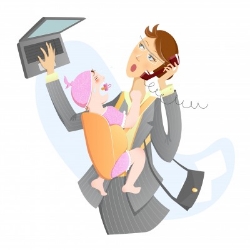Do you ever wish you could be more confident, more self assured? Do you with that you didn’t doubt yourself, your abilities, your value, or your place in the world? We all know that healthy self-esteem is important to healthy relationships and happiness, but if you struggle with self-confidence, you may not know how to improve it.

This, and the next two posts will address:
- How Healthy Self Esteem is encouraged in children, and the key ingredeints we all need for healthy psychological development.
- How to Improve an injuered sense of self through routine psychological exercises.
- How to Recover your self-confidence after a toxic relationship.
Let’s start by asking yourself these questions:
Do you…
- Feel less talented, attractive, intelligent, successful than most people?
- Compare yourself to others often, wondering how you rank?
- Beat yourself up after simple mistakes, oversites, or embarrassing moments?
- Talk to yourself like you’re the worst person on earth?
- Struggle with toxic shame and guilt?
- Feel responsible for other people’s happiness?
- Rehearse to ad nauseam self-criticisms?
If you answered yes to these questions, you may have a wounded sense of self, or in other words, a poor self-esteem.
Understanding Self Esteem
Self Esteem is developed in children over a period of time by way of three factors: 1) Positive regard and affirmation from family of origin, 2) Attainment of Skills and Competencies, and 3) Acceptance by Peers. That’s the short answer, but there is actually a lot that goes in to building one’s self-esteem. Here’s the deets.
1) Positive Regard and Family Affirmation: Esteem deposits drop into a child’s core self through consistent affirmation, guidance, love and discipline from parents. Parents and care-givers don’t have to be perfect, they just need to be good enough- guiding, loving, listening, correcting and encouraging their children. However, if the environment is over bearing, coddling, overly critical, emotionally unsafe or unpredictable, the child could develop some serious ego wounds. If, for example, a mother rarely lets her son do hard things for himself, he will likely grow up believing he is incapable of overcoming challenges. On the other hand, if a father is overly critical of a child who works hard, the child will grow to feel like her best is never good enough. One caveat here: there are some adults who grew up in a loving and supportive home and who developed a positive self-esteem, however during adulthood, encountered something so negative, traumatic or abusive, that over time, their self esteem was injured. People in toxic work, marriage or cult environments who start out confident and self-assured, can be so afflicted by persistent, deliberate psychological abuse that the self-esteem injury can take years to heal.
2) Attainment of Skills and Competencies: Just as important to building self-esteem, is consistent mastery of developmental tasks. As the child grows in emotional self-regulation, physical maturation, and attainment of new skills, he/she will be confident to try new things. As the child experiments with music, sports, building things, drama, art, animals, etc, the child will discover natural talents and gain in proficiencies. When a child feels he is good at something, his self-esteem rises. If a child is not encouraged or allowed to become competent in his interests, or is steered toward something he is not good at or interested in, his self-esteem will struggle.
3) Acceptance by Peers: By ages 10, 11, and 12 the voice of the peer group begins to speak louder than the parents. Children who are generally accepted by their peers will glean self-esteem through the adolescent years from the feedback they are getting from their peers. If they feel excluded, like they don’t fit in, or in the worst case, bullied, then their self esteem can take a big hit. Many teens who didn’t succeed socially, will do so in young adulthood, thereby repairing the damage to their self-esteem. If not, a child could grow up feeling socially inadequate, anxious in social situations, and generally undesirable.
If you are well past your 20s you may think the Self Esteem Ship has sailed, and that if you didn’t develop a healthy self-esteem when you were younger, it’s too late for you. The great news, is that it’s not too late. You can work on your self-esteem at any stage in life and achieve the confidence you need to set boundaries, to resolve conflict, to achieve deeper intimacy, and pursue big goals.
With the right people, practice and positivity, you can change that pesky sense of self-doubt once and for all. Now that we’ve talked about what goes into the development of healthy self- confidence, we are ready to learn the basics of IMPROVING self-confidence. Next week, I will be offering 6 Simple Ways to Improve Self Confidence. Talk to you next week!








